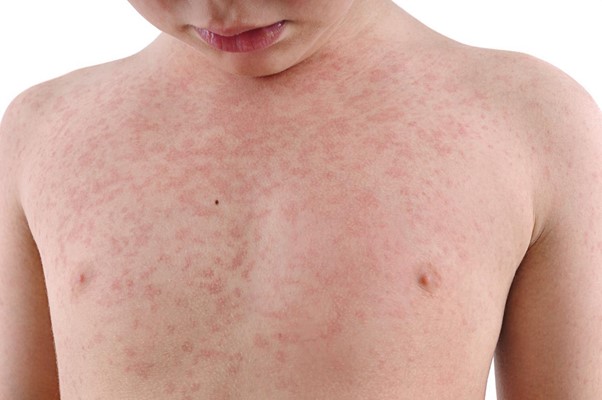
Food allergies are an increasingly common medical condition in which the body reacts abnormally or excessively to certain foods.
While food allergies can range in severity, most of them involve an immune system response that results in symptoms such as rashes, nausea, vomiting, or breathing difficulties.
The majority of food allergy-related reactions are caused by eight common food groups including peanuts, tree nuts, milk, eggs, wheat, soy, fish, and shellfish.
Common Culprits for Food Allergies
Milk
Milk is a typical food allergen, and it is especially dangerous for young children. Symptoms include hives, vomiting, and even anaphylaxis. While some people may outgrow milk allergies, for others, it can be a lifelong condition. If you have a milk allergy, it’s important to read labels carefully and avoid all forms of milk, including butter and cheese.
Eggs
While in most cases, people outgrow egg allergies by the age of five, for some, egg allergies can persist throughout adulthood. Symptoms include hives, itching, and anaphylaxis. Always check labels and avoid foods that contain eggs or egg-based products like mayonnaise and some baked goods.
Peanuts

Peanut allergies are one of the most common food allergies, and peanuts can be found in many foods, including baked goods, candy, and peanut butter. Symptoms include anaphylaxis, hives, and swelling. To avoid peanuts, always read food labels and be aware of cross-contamination in restaurants.
Tree Nuts
Tree nuts, including almonds, cashews, and walnuts, are another common food allergen. Symptoms can be mild or severe, and in some cases, can lead to anaphylaxis. Always read labels carefully, and be aware that tree nuts may be present in baked goods, cereals, and granola bars.
Shellfish
Shellfish allergies are very common and can be life-threatening. Avoid all forms of shellfish, including shrimp, crab, and lobster. Be aware of cross-contamination in restaurants, and always ask how food is prepared.
Soy
Soy is a common food allergen, and it can be found in many packaged foods, including processed meats, bread, and cereal. Symptoms include hives and difficulty breathing. It’s important to read labels carefully and avoid all forms of soy.
Wheat
Wheat allergies are common, and many people with wheat allergies also have celiac disease, an autoimmune disorder. Symptoms of wheat allergies include hives, nausea, and swelling. Avoid wheat, rye, and barley, and be aware that wheat is often present in baked goods, pasta, and crackers.
Fish
Fish allergies can be severe, and symptoms can range from mild to life-threatening. Avoid all forms of fish, including shellfish, and be aware of cross-contamination in restaurants.
Corn
Corn allergies are less common than some of the other allergies on this list, but they can be severe. Symptoms include hives, swelling, and vomiting. Corn can be found in many packaged foods, including cereals, soups, and even some medications.
Sesame
Sesame allergies are becoming more common, and sesame can be found in many foods, including bread, sauces, and dips. Symptoms include hives and difficulty breathing. Always read food labels carefully, and be aware that sesame may be present in unexpected foods.
Symptoms of a Food Allergy
Several symptoms may indicate the presence of a food allergy, but the most common are hives, itching or swelling in the mouth and throat area, nausea, vomiting, diarrhea, abdominal cramps, and difficulty breathing.
If these symptoms occur soon after eating a particular food or drink, it is likely an allergic reaction. In some cases, anaphylaxis, a potentially life-threatening reaction, may occur.
How to Manage Food Allergies
The best way to avoid a reaction is to identify and avoid the foods that cause your allergy. If you need help identifying your food allergies, consult with your doctor or allergist who will be able to provide testing and diagnosis.
Once the food allergen is identified, it is important to read ingredient labels carefully before consuming any food or drink. In some cases, such as with peanuts and tree nuts, even trace amounts of the allergen can trigger a reaction.
Care should also be taken when eating at restaurants as cross-contamination in kitchens may cause an allergic reaction.
Tips for Preventing and Treating Reactions
Identify and Avoid Triggers
The first step to preventing allergic reactions is identifying and avoiding triggers. Keep a diary of your symptoms and try to identify potential allergens responsible for your reactions.
Avoiding exposure to identified allergens will help keep allergic reactions at bay.
For instance, if you are allergic to pollen, avoid going outside on windy days, keep doors and windows closed, and wear protective clothing when necessary.
If you are allergic to certain foods, be vigilant about reading labels and asking questions when dining out.
Be Prepared
Allergic reactions can occur at any time, and it is important to be prepared in case they do. Make sure you carry emergency medicine like epinephrine injectors (EpiPens) and antihistamines with you all the time.
Keep the medication within reach and use it immediately if you experience any symptoms. You should also ensure that the drug is not expired and is stored properly.
Inform your family, friends, coworkers, and school staff about your allergies and how to use the medication in an emergency.
Know the Symptoms
Allergic reactions can manifest in different ways, and it is important to know the symptoms. Common symptoms include hives, respiratory problems, stomach cramps, and itching.

If you experience any of these symptoms, use your emergency medication and seek medical attention immediately.
Even if you feel better, it is still important to seek medical attention because some allergic reactions can cause long-term complications.
Seek Medical Help
If you have a severe allergic reaction, don’t hesitate to seek medical help. Immediate treatment is crucial in preventing complications and saving lives.
Emergency medical personnel can provide life-saving treatments like epinephrine and oxygen therapy.
If you have a known severe allergy, it is recommended that you wear a medical alert bracelet or necklace indicating your allergy and medication needs.
Manage Your Allergies
Managing your allergies is an important step in preventing allergic reactions. You can reduce your risk of triggering an allergic reaction by keeping your environment clean, avoiding overexertion, and taking care of your overall health.
Keep your living spaces clean, change air filters regularly, and use dust-proof covers for pillows and mattresses. Also, avoid over-exercising as it can cause breathing problems and trigger allergies. Eat a nutritious diet, exercise regularly, and manage stress to maintain overall health.
Conclusion
Food allergies can cause uncomfortable and sometimes dangerous reactions, so it is important to take the necessary steps to identify and avoid allergens. If you think that you have a food allergy, consult with your doctor for allergy testing and diagnosis.
With careful management, you can still enjoy a variety of foods without worrying about potential reactions. Here are more tips for managing food allergies.